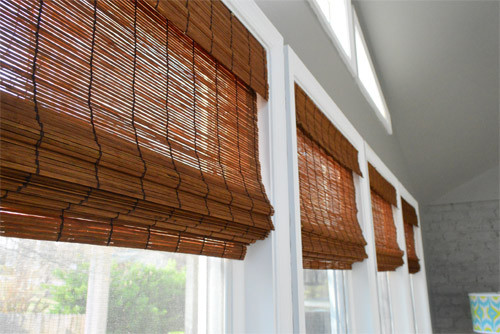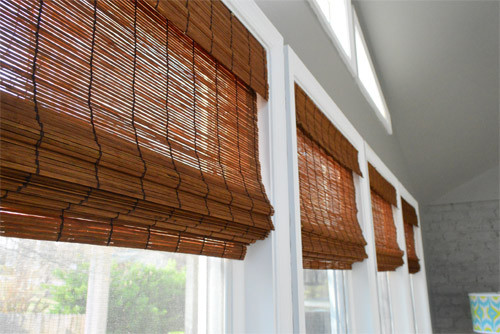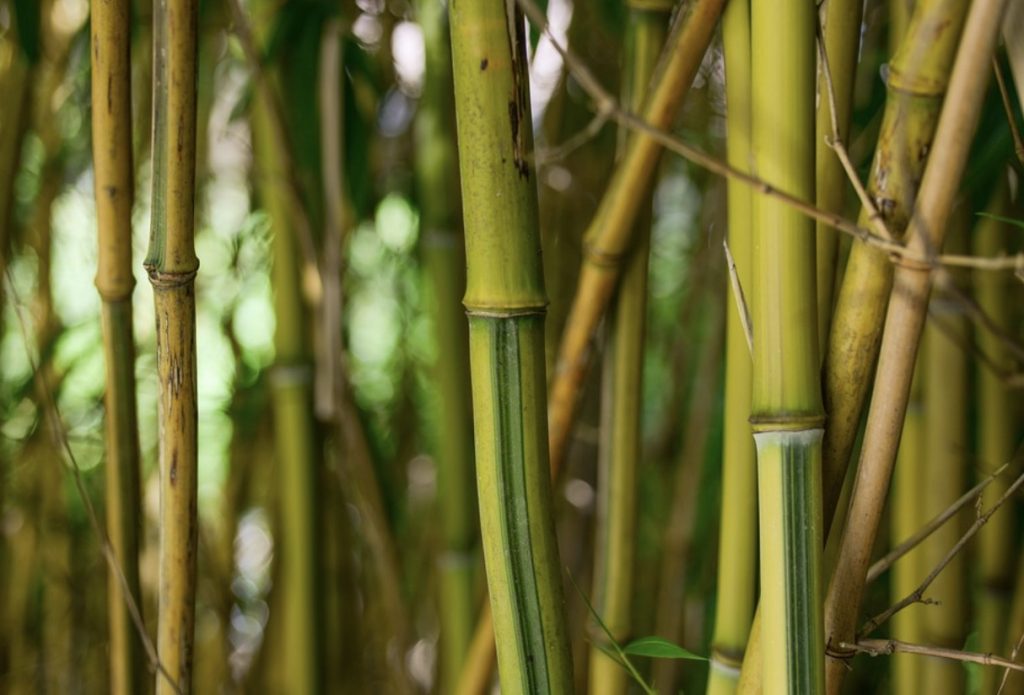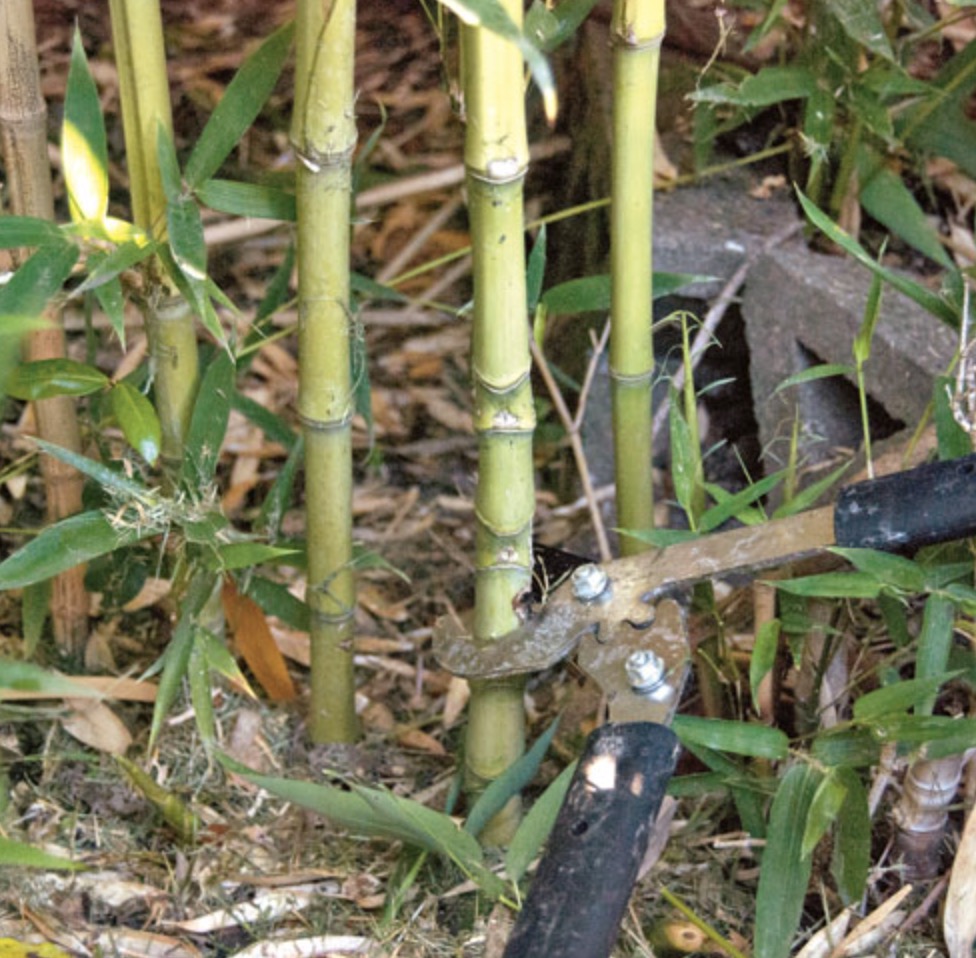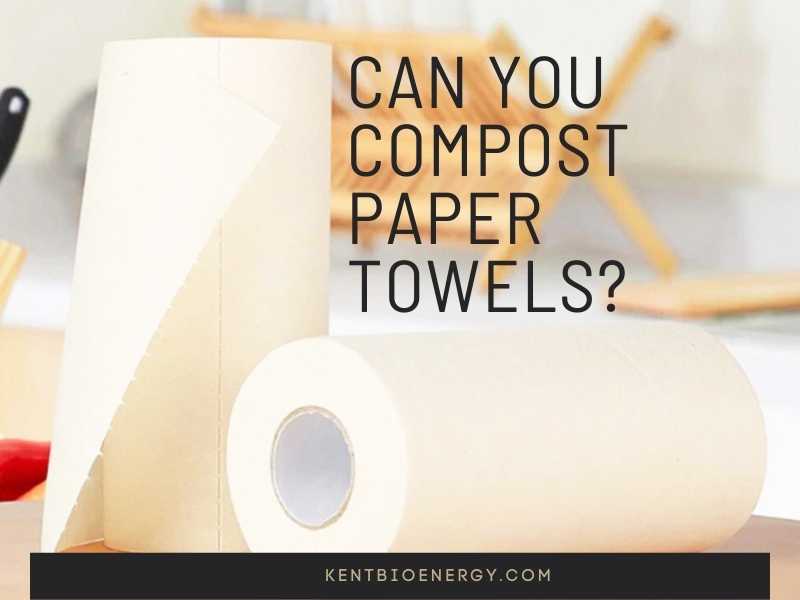Recent discoveries on chemicals in foods have raised various concerns for organic mulch as a valuable alternative to chemical fertilizers.
One of the most familiar organic mulches is bamboo mulch, which is beneficial for your soil and plants and saves much time and effort. Follow this post to get a guide to bamboo mulching.
What Is A Bamboo Mulch?
Before going to bamboo mulching specifically, let’s get a look at mulch in general. People often use mulch in landscapes surrounding plants to retain moisture and nutrients. They use mulch as a weed barrier to help the soil and the plants’ roots overcome periods of extreme drought.
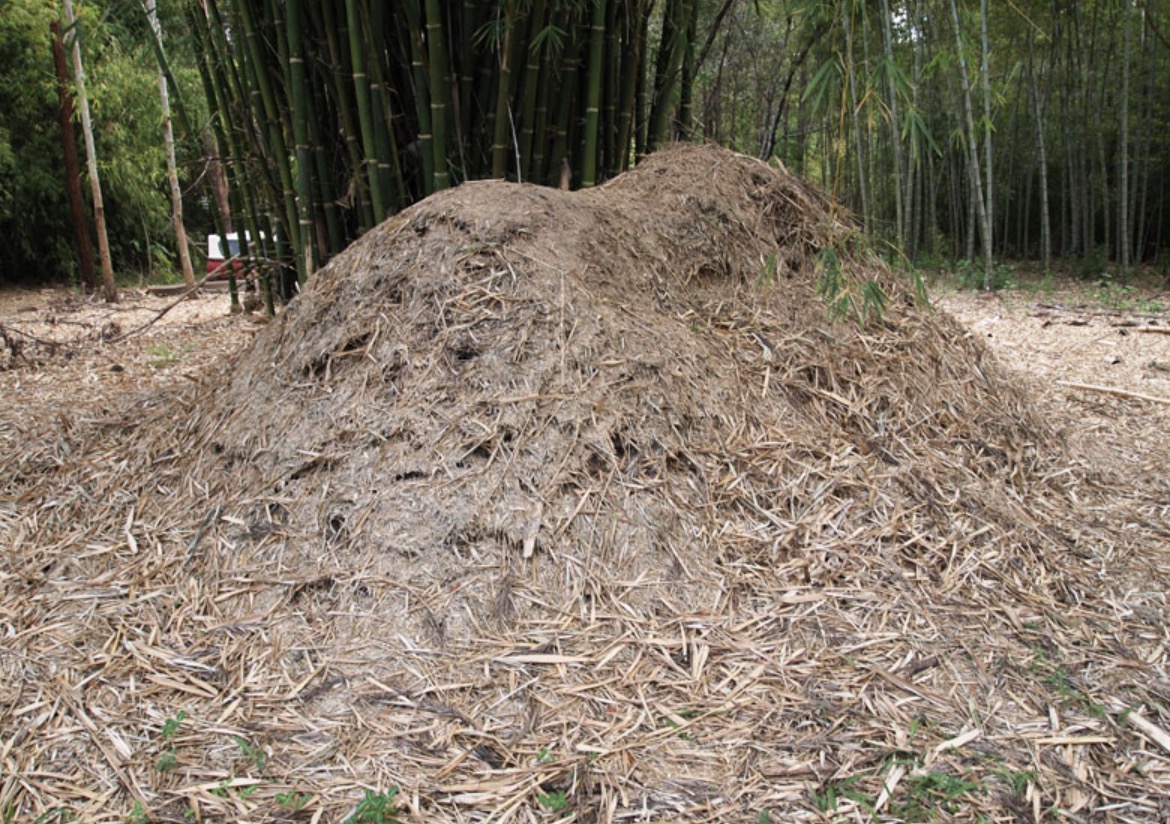
Mulches are normally made of biodegradable materials like leaves, manure, woodchips. They gradually decompose into the soil as time passes by and need replacing. However, this process contributes to the soil’s fertility as well as organic content.
When it comes to using bamboo as mulch, it is often woody grass that we’re speaking about. Its roots and rhizomes benefit hugely from applying multiple layers of mulch. Bamboo leaves abound in numerous compounds helping foster healthy soil. Therefore, turning your bamboo into mulch brings you great merits.
Benefits Of Bamboo Mulch
Despite not being a common choice, bamboo is an excellent selection you should try for mulch. With various advantages below, bamboo as mulch will never fail to amaze you.
It’s Chemical-free
Although chemical fertilizers may be good for your health to some extent, they still contain some toxic substances. If you grow vegetables or fruit trees in your garden, those fertilizers can negatively affect the quality of your food.
Instead, bamboo leaves can be a better choice. All you need to do is simply shred all leaves and stems before putting them into the soil. Consequently, there is no need to be concerned about your mixture being dug through by your pets.
A Sustainable Source Of Fertilizer
All mulches offer valuable nutrients, and bamboo is not an exception. Still, what distinguishes bamboo from the others is Silica. The high content of the great beneficial nutrient of Silica in bamboo mulch makes it a sustainable, eco-friendly alternative to chemical fertilizers.
Rich in Silica, mulch from bamboo increases the resistance of plants, boosts photosynthesis and chlorophyll content. It can also improve drought resistance, tolerance to salt, and soil fertility, thus, enhance the production and crop quality.
In addition, Silica prevents frost damage and destructive diseases, reduces insect pressure. It also lowers the irrigation rate, neutralizes heavy metal toxicity, and counters the excess sodium’s negative influences as well. All of them help to nourish the soil!
It’s Permeable
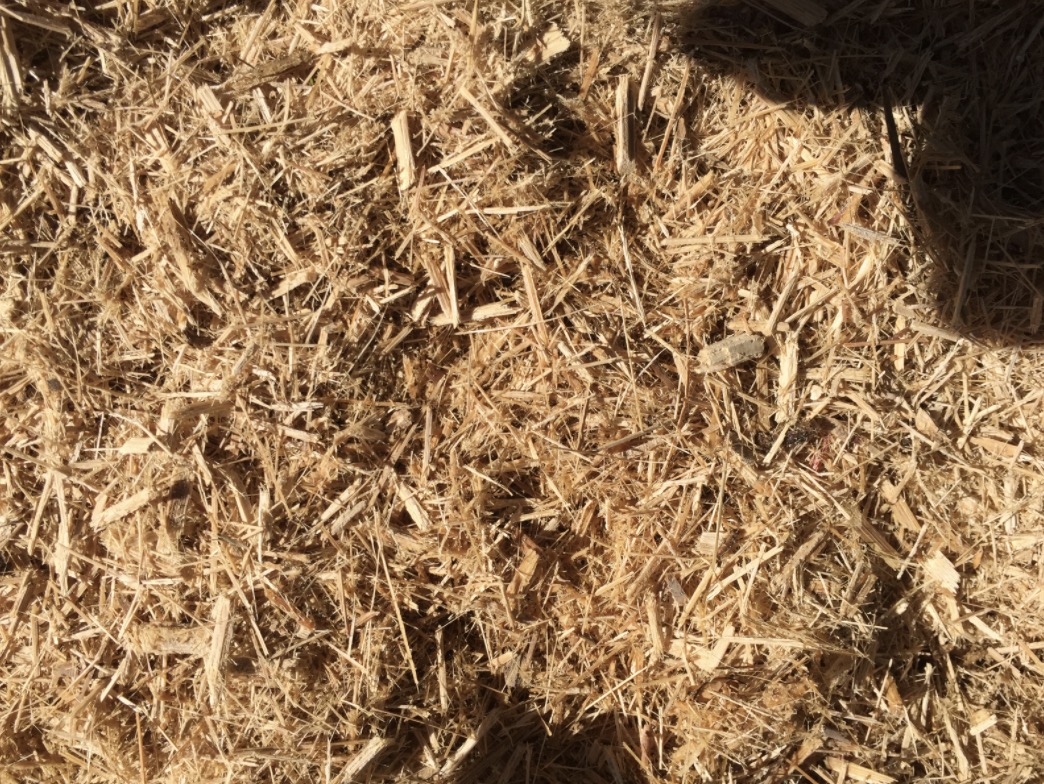
Permeability makes it possible for water to penetrate through the compounds of bamboo to the roots of the plants. It means that watering will become easier and effective as plants can absorb water better.
Another remarkable upside is that mulch with bamboo as fertilizer prevents you from facing the experience of mulch floating. Bamboo leaves don’t float away when rainy seasons come. They are a perfect choice for all sloping gardens.
It Provides A Low Nitrogen Drawdown
Nitrogen drawdown is the nitrogen loss in plants because of high amounts of carbon, causing slower growth and even deficiencies.
Woody mulches like bark, sawdust, and wood chips typically possess a high level of nitrogen drawdown. However, this high amount is not advantageous for your plants. If using woody mulches, your soil is unhealthy and requires additional fertilizers to maintain.
Bamboo is not in this case as it contains a low nitrogen drawdown. There is no need for additional fertilizing when you choose bamboo as mulch. One more benefit is the remarkable increase in the activity of worms underneath the mulch. How wonderful it is!
It Saves Money
Using bamboo as mulch is an undoubtedly economical option for fertilizers. Instead of shelling some money on chemical fertilizers, you can simply trim bamboo mulch out of the garden and get it ready for use.
Compared to many other wood mulches, bamboo also decomposes much more slowly. As a result, you can save both money and time as it does not need frequent replacement.
How To Use Bamboo As Mulch?
The easiest way to have bamboo mulch is by buying already made ones. Nevertheless, if you’ve got sufficient materials or get access to a bamboo forest, you can make it on your own. Let’s follow the straightforward process below.
Step 1. Collect The Bamboo Leaves, Stalks, And Shoots
There are several parts of bamboo you can take advantage of for mulching. They are the leaves, stalks, roots, and shoots in particular. So the first step is obviously to collect these necessary materials. Either dry or fresh leaves are useful.
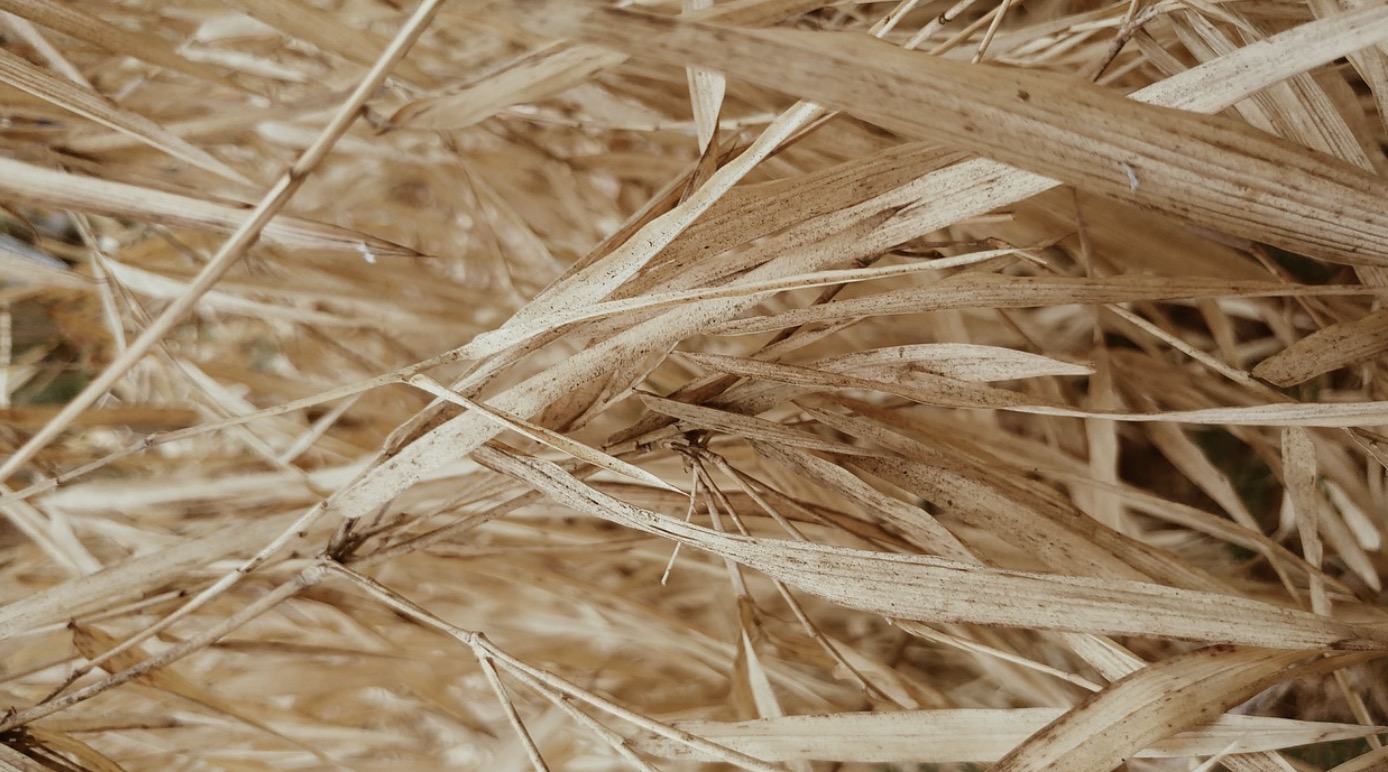
In case you want to use bamboo roots, take notice to kill rhizomes in advance since they can lead to new bamboo shoots growing in the mulch. A simple way is shredding the roots. It will prevent the bamboo from springing.
Step 2. Shred The Bamboo Parts
Although it’s possible to add bamboo materials directly to the soil, it would be better to shred them before mulching. This will deliver better results.
Chipper is a useful tool that will help you in this step. Additionally, gardening scissors can always be an alternative to snip the leaves to pieces.
If there is neither chipper nor scissors around you, the most basic manner is to get it done with your hands. Still, you should consider it carefully because it’ll be tedious and time-consuming. Another option for you is to buy pre-shredded bamboo for mulch.
Step 3. Add Your Shredded Bamboo To The Soil
Once you’ve shredded enough bamboo, it’s high time you put it all to the mulch. You should adjust the thickness of the mulch based on the weather conditions and landscape. It’s a fact that mulch should be thicker in extreme climates to protect the soil.
For flowers, arrange a layer of shredded bamboo 2 – 3 inches deep surrounding the flower bed. About 2 – 6 inches for trees, depending on the size of the trees. It’ll be better to mix the bamboo into the soil. This way, the pets can not harm it.
Step 4. What Can I Do With The Excess Bamboo Mulch Left?
With the redundant shredded bamboo, you can take advantage of them by filling in your garden’s wet areas. A moisture barrier will be formed thanks to the bamboo fibers linked together.
Alternatively, you can turn them into walkway pavers as you wish. This is a low-cost and wonderful option to enhance your landscape. Try it!
Step 5. Replenish The Mulched Areas As The Bamboo Decomposes
Bamboo in the mulched areas tends to decompose as time goes by. At that time, you need to add another layer of shredded bamboo on top of the earlier one. Using bamboo for mulching will continuously nourish your soil.
How Long Does It Take For Bamboo Leaves To Decompose?
Being eco-friendly slow-release fertilizers, normally bamboo leaves take about a year to completely decompose from the moment they are put into the soil. It’s the reason why bamboo trees grow in nature without the appearance of additional fertilizers. These plants absorb nutrients from their fallen leaves.
Which Plants Will Like Bamboo Mulch?
Nearly any plant will flourish with mulch compost from bamboo, including bamboo itself. You can apply the mulch around any trees, vegetables, and flowers in your yard or garden.
The best results come with some popular plants such as wheat, pumpkins, and cucumbers. Those crops are quite sensitive to powdery mildew. Bamboo mulch is a strongly protective layer against this disease, thanks to its Silica content.
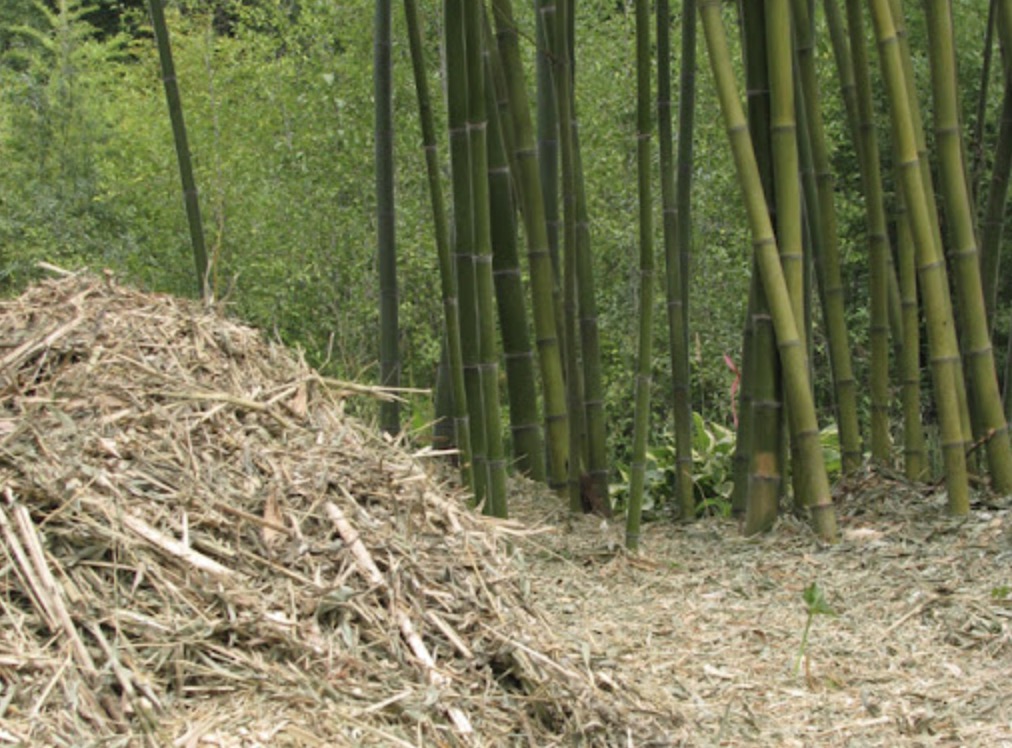
Conclusion
There is no doubt about what good bamboo mulch can do to your garden. It is a sustainable and organic way to keep your garden fertile. Also, you can maximize the results and minimize time as well as money at the same time. So, get started and have your mulch ready for use.
Related Articles
Help Us! Share on:


